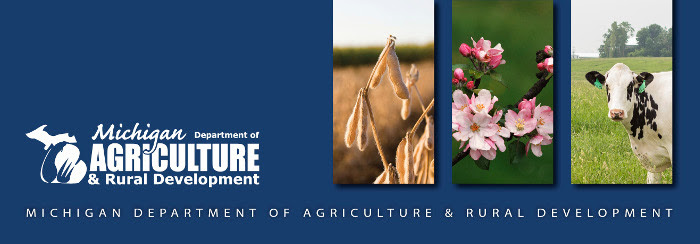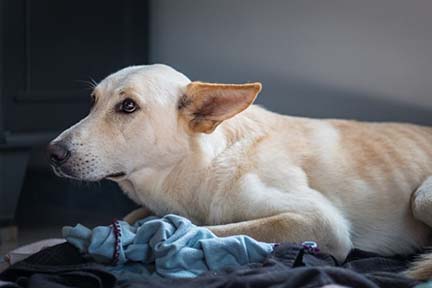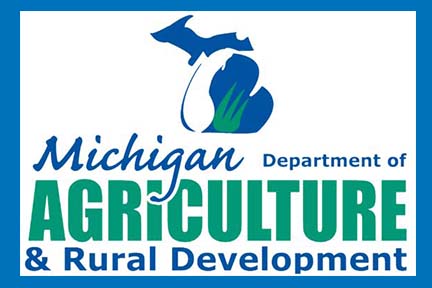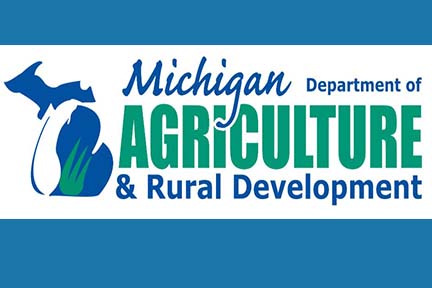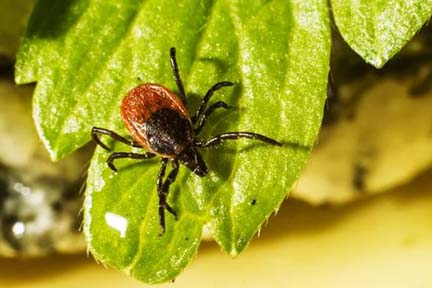For immediate release: June 17, 2024
Media contacts: Jennifer Holton, 517-284-5724 or Chelsea Lewis-Parisio, 517-331-1151
MDARD Reminds Owners to Help Keep Their Animals Cool and Safe as Temperatures Rise
Feeling hot? Chances are your animals are too
LANSING, MI—As temperatures rise into the 90s in many parts of the state, the Michigan Department of Agriculture and Rural Development (MDARD) is reminding owners on some of the best ways to keep animals cool and safe.
“When temperatures rise, keeping animals cool and hydrated is essential to their overall health,” said State Veterinarian Dr. Nora Wineland, DVM, MS, DACVPM. “While it is important to recognize the signs of heat stress in animals, it is even more critical to prevent this stress from occurring. Michiganders can follow six easy steps to help keep animals cool and safe.”
Keep animals safe from the heat by following these tips:
- Let it Flow: Provide unlimited cool, clean, fresh water
Just like people, animals can quickly get parched in hot temperatures. No matter the species, animals should have access to unlimited cool, clean, fresh water to prevent dehydration. Also, if out in public, bring along some hydration options for your animal and avoid using shared/communal water bowls.
- Know Their Limits: An animal’s ability to tolerate heat varies
An animal’s age, breed, type of coat, and health history can all play a role in their ability to tolerate the heat. Keep an eye on them for signs of heat stress—like increased panting or drooling and being more lethargic. If they are showing these signs, it is time to immediately move them to a cooler area.
Also, consider talking to your veterinarian. They will have a greater knowledge of your animal(s) and be able to give more specific guidance on how to best handle them in hot weather.
- Happy Paws: Test surfaces to make sure they won’t burn paws
Surfaces like asphalt, concrete, and sand can really heat up in the sun, which can burn paws—or at least make a walk very uncomfortable. To test if a surface is too hot, touch it with the palm of your hand. If it is too hot for you, consider taking a different route that is mostly grass or waiting until the evening when everything has had a chance to cool.
- Look Before They Splash: Avoid harmful algal blooms (HABs) in bodies of water
HABs form due to a rapid growth of cyanobacteria, also called blue-green algae, which are naturally found in lakes, rivers, and ponds. To prevent illness in animals, keep them out of areas with scums or discolored water, rinse them off after contact with any lake water, and bring clean, fresh water for them to drink. If an animal becomes sick after contact with a suspected HAB, call your veterinarian right away.
Also, animal illness due to HABs is reportable to MDARD. To report cases, submit a Reportable Disease Form or call 800-292-3939. In addition, to report any suspicious looking algae, please email [email protected].
- Get in Gear: Parked vehicles are not places to park pets
Even when temperatures feel more moderate, vehicles can heat up very quickly, creating dangerous conditions for the animals left inside. Leaving windows cracked open and/or parking in the shade do little to improve the situation. In these conditions, it is best to leave pets at home when you need to go out and about.
- A Place to Chill: Make sure animals have a place to cool down
Animals know when they are too hot and will usually try to find a place where they can cool down. Make sure they have access to shade, fans, misters, pools, cooling mats, and/or air-conditioned spaces to help them stay comfortable.
Following these tips can help keep your animals cool and comfortable through any heat wave. If there are any concerns about your animals’ health either now or throughout the summer months, please talk to your veterinarian.
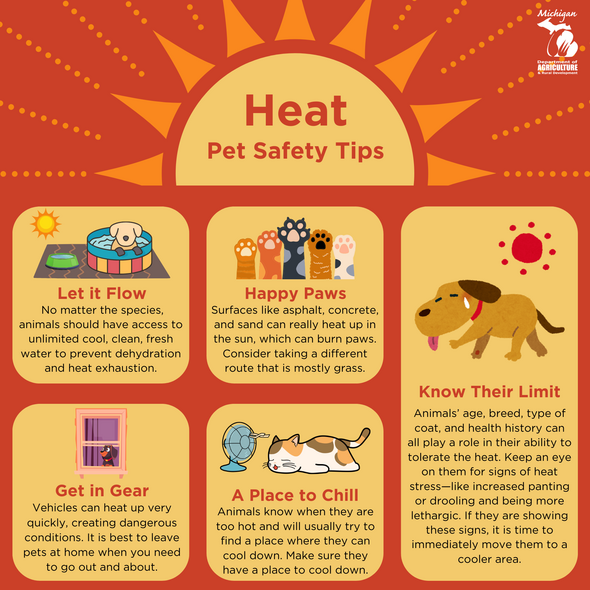
|

